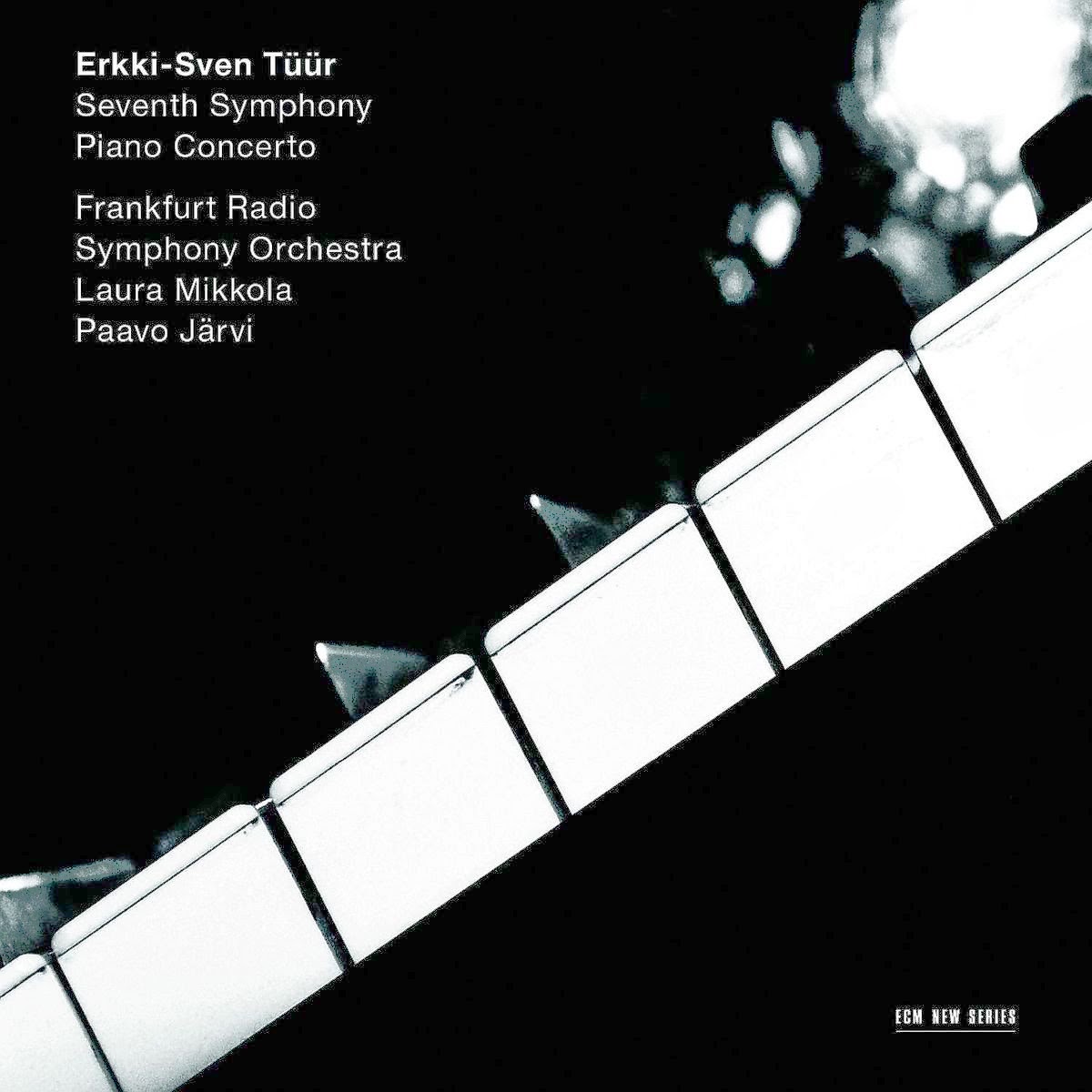 The sixth ECM New Series album by Estonian composer Erkki-Sven Tüür
presents two major works, commissioned by the Hessische Rundfunk and
given their premieres by the Frankfurt Radio Symphony orchestra. Both
works are powered by what Tüür calls his “vectorial writing method”, a
means of developing pieces from “a source code – a gene which, as it
mutates and grows, connects the dots in the fabric of the whole
composition.” The process, already reflected in works including
“Oxymoron”, “Strata” and “Noesis”, has led to a body of work quite
distinct from Tüür’s earlier, discursive ‘metalinguistic’ music in which
diverse idioms – from serialism to minimalism – were contrasted,
interwoven, reconciled. Tüür’s 21st century music foregoes “unnecessary
eclecticism”, and manifests instead an organic coherence. These are
pieces of determined, individual temperament. As Paul Griffiths observes
in the liner notes, Erkki Sven Tüür’s 7th Symphony, written in
2009 and dedicated to the Dalai Lama “and his lifelong endeavours”, is a
unique choral symphony, “a work where the orchestra has its own
purposes, among which that of framing and supporting the voices is by no
means paramount.” The texts that the NDR Choir sings include words of
the Buddha from the Dhammapada as well as utterances of more
contemporary visionaries and sages, from Gandhi to Mother Theresa. Once a
text is used, says Tüür, if only minimally, “it starts to create
meanings for an otherwise abstract musical material.” The physical power
of the symphony then appears to be influenced and mediated by words
addressing the power of compassion.
The sixth ECM New Series album by Estonian composer Erkki-Sven Tüür
presents two major works, commissioned by the Hessische Rundfunk and
given their premieres by the Frankfurt Radio Symphony orchestra. Both
works are powered by what Tüür calls his “vectorial writing method”, a
means of developing pieces from “a source code – a gene which, as it
mutates and grows, connects the dots in the fabric of the whole
composition.” The process, already reflected in works including
“Oxymoron”, “Strata” and “Noesis”, has led to a body of work quite
distinct from Tüür’s earlier, discursive ‘metalinguistic’ music in which
diverse idioms – from serialism to minimalism – were contrasted,
interwoven, reconciled. Tüür’s 21st century music foregoes “unnecessary
eclecticism”, and manifests instead an organic coherence. These are
pieces of determined, individual temperament. As Paul Griffiths observes
in the liner notes, Erkki Sven Tüür’s 7th Symphony, written in
2009 and dedicated to the Dalai Lama “and his lifelong endeavours”, is a
unique choral symphony, “a work where the orchestra has its own
purposes, among which that of framing and supporting the voices is by no
means paramount.” The texts that the NDR Choir sings include words of
the Buddha from the Dhammapada as well as utterances of more
contemporary visionaries and sages, from Gandhi to Mother Theresa. Once a
text is used, says Tüür, if only minimally, “it starts to create
meanings for an otherwise abstract musical material.” The physical power
of the symphony then appears to be influenced and mediated by words
addressing the power of compassion.
In the Piano Concerto, Finnish pianist Laura Mikkola gives an
exceptional performance, responding to the surging waves of the
orchestra and the inspired direction of Paavo Järvi. The concerto is a
work of explosive energies, orchestra and piano moving on inter-related
and intersecting planes, “continuous and continually in the process of
meeting.”




No hay comentarios:
Publicar un comentario